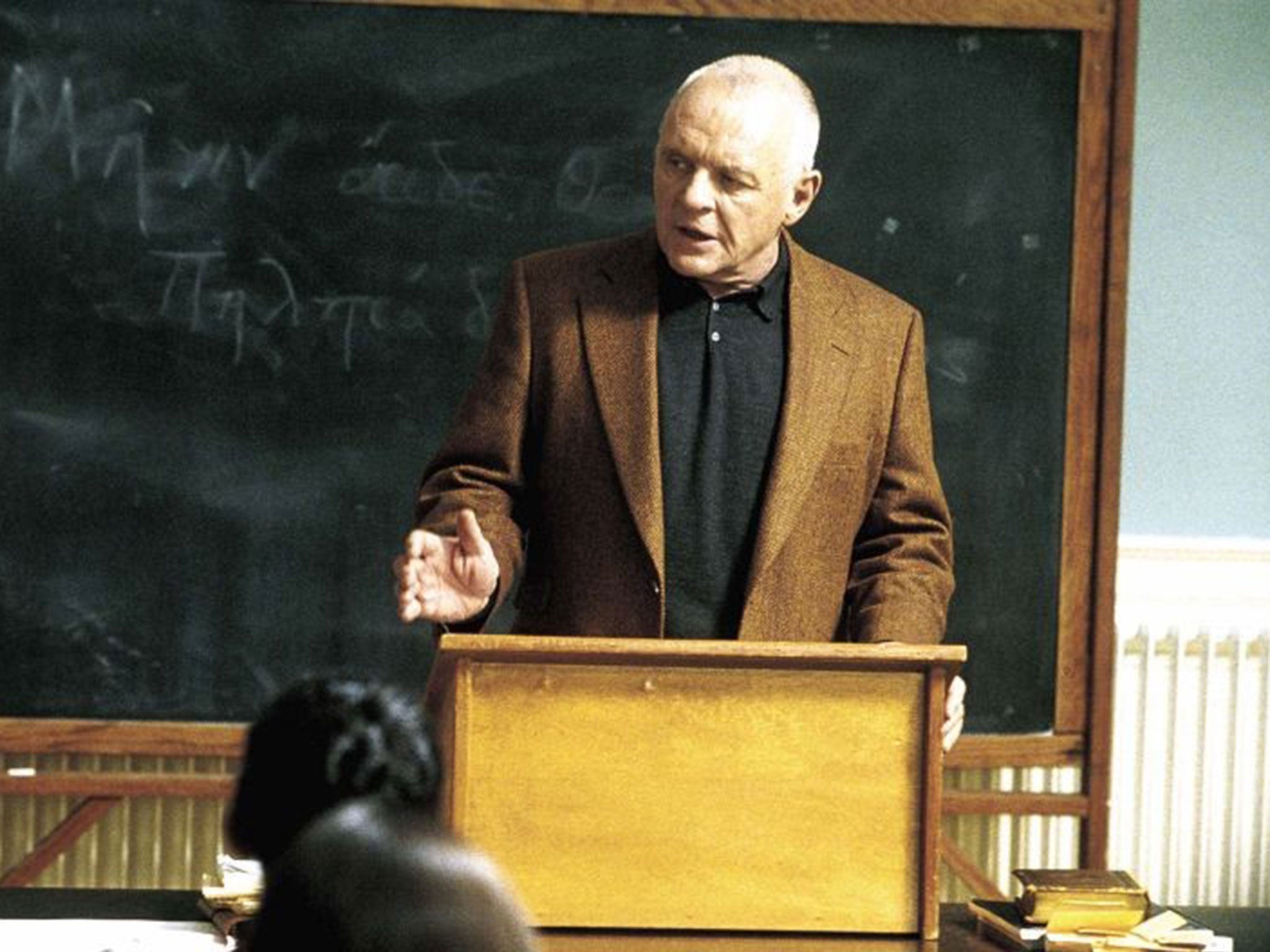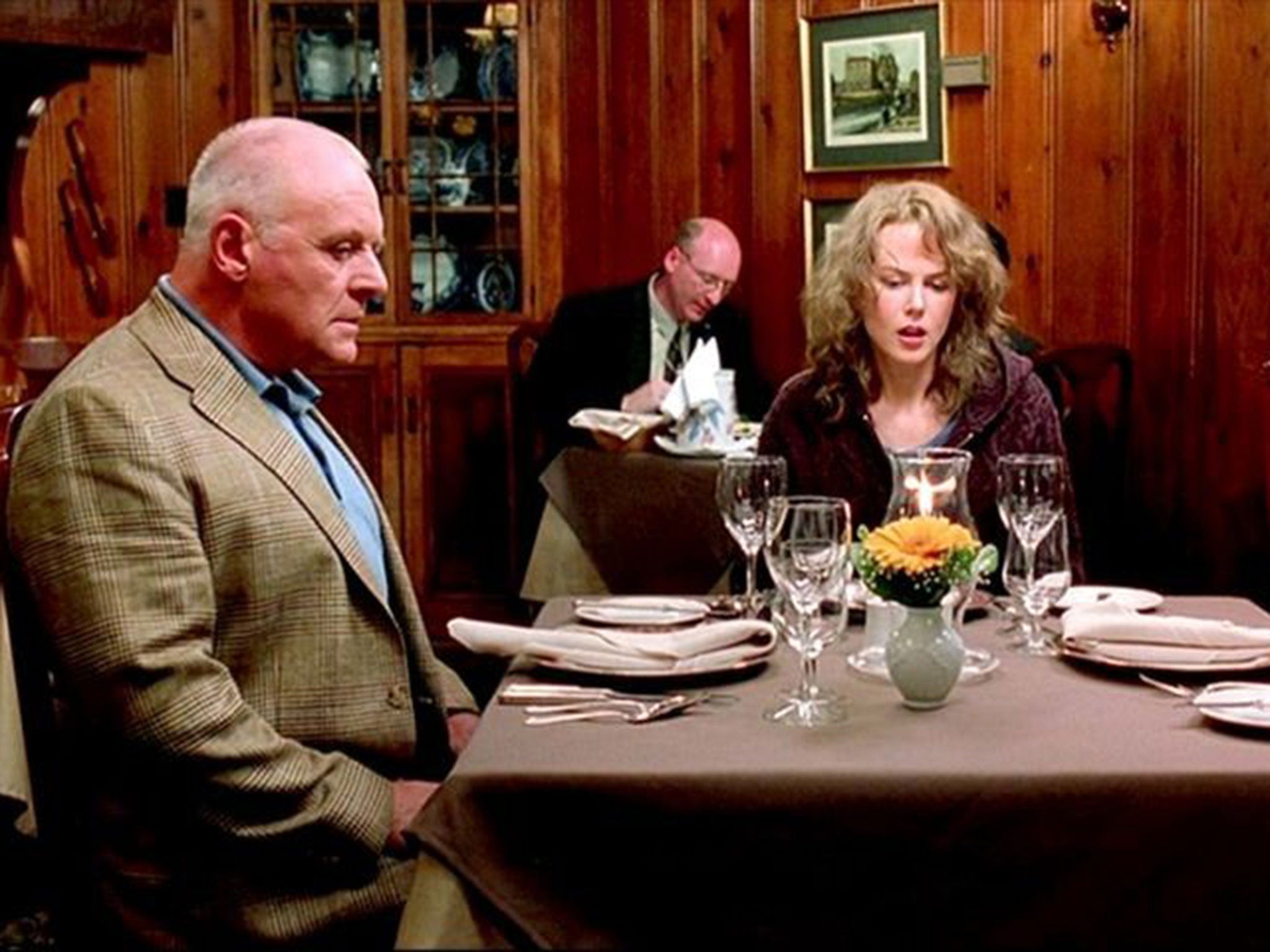Carry on campus: The satirical needling deflates the high-minded ideals of the groves of academy
University life has long been a subject of satire for novelists. As the latest addition to the genre is published, academic Benjamin Poore reflects on how budget cuts and business models might soon make today’s institutions beyond parody

Your support helps us to tell the story
From reproductive rights to climate change to Big Tech, The Independent is on the ground when the story is developing. Whether it's investigating the financials of Elon Musk's pro-Trump PAC or producing our latest documentary, 'The A Word', which shines a light on the American women fighting for reproductive rights, we know how important it is to parse out the facts from the messaging.
At such a critical moment in US history, we need reporters on the ground. Your donation allows us to keep sending journalists to speak to both sides of the story.
The Independent is trusted by Americans across the entire political spectrum. And unlike many other quality news outlets, we choose not to lock Americans out of our reporting and analysis with paywalls. We believe quality journalism should be available to everyone, paid for by those who can afford it.
Your support makes all the difference.By now, undergraduate students will have returned home for reading week. This might be their first time back at home since leaving for university. They will be dead-eyed, broke, and nursing mystery infections; only at this point will parents begin to realise the true physical and financial costs of their offspring’s exorbitantly priced education.
Who wouldn’t be concerned about value for money? They might well ask, have they learned anything? Are they on course for a graduate-recruiter friendly 2:1? If they look like this, what is it that their lecturers actually do all day?
Fortunately there is a rich body of literature detailing the days and nights of the intellectuals, past and present, who labour tirelessly for their students. The best-known exponent to date is surely David Lodge, whose Changing Places and Small World – 1975 and 1984 respectively – satirised the viciousness of internecine campus squabbles in British red-bricks and US universities, as well as the attempts of their (invariably) male protagonists to instigate sexual liaisons with attractive students.
Since the birth of the genre in the late-1940s, itself a response to the massive post-war democratisation of university study, many luminaries have contributed their own versions of university life to literary fiction: Philip Roth’s The Human Stain (2000), Zadie Smith’s On Beauty (2005), Don Delillo’s White Noise (1985), Vladimir Nabokov’s Pale Fire and Pnin (1962 and 1957).

A number of critics have declared the campus novel dead and buried, with John Dugdale slating Joyce Carol Oates’s The Accursed just last year, and declaring the college sections of Jonathan Franzen’s The Corrections “mystifying and unfunny”. Even Philip Roth’s The Human Stain is, in Dugdale’s eyes, “muddled and embarrassing”, and Dugdale notes that campus novels, now approaching “retirement age” as a genre, have become repetitious. But, like some ageing professors, they refuse to bow out, and it is into this cloistered crisis that Julie Schumacher’s new epistolary satire Dear Committee Members enters this week.
Schumacher’s novel is written from the perspective of Professor Jason Fitger, a teacher of creative writing at a small American liberal arts college – Payne University – by means of the endless letters of reference and recommendation he writes in support of his students and colleagues. Many are, amusingly, in support of the burgeoning efforts of his favourite, but presumably useless, graduate student Darren Browles. Fitger spends pages advocating for Browles’ own fictional masterpiece, a re-writing of Herman Melville’s Bartleby set in a brothel.
Academics in literature might often be drunks (Lucky Jim) or serial shaggers (such as Howard Kirk in Malcolm Bradbury’s The History Man) or, most embarrassingly, aspiring composers, as in J M Coetzee’s Disgrace, but there are also glimpses of the pleasures of intellectual life. The eponymous hero of W G Sebald’s remorseless masterpiece Austerlitz, from 2001, describes his work: “‘How happily’, said Austerlitz, ‘have I sat over a book in the deepening twilight until I could no longer make out the words and my mind began to wander’.”
John Williams’ Stoner (1975) offers a straightforwardly lyrical rendering of academia as work, equally ordinary and absorbing, “a happy state of exhaustion that he hoped might never end”. But the campus novel does not always offer such manly and inward reflections on the beautiful integrity of scholarly life. Lucky Jim might bear the hallmark of some of Kingsley Amis’s chauvinist boorishness, yet is often hilariously observed satire. Jim Dixon, the unfulfilled academic protagonist, reflects on the ironic adjoining of the town cemetery to the unglamorous provincial college at which he teaches: “Lecturers were fond of lauding to their students the comparative receptivity to facts of ‘the Honours class over the road’.”
Lucky Jim is, perhaps more than anything, in the tradition of gleefully sending up provincial life, just as Flaubert’s novels do so piercingly, but it is also pleasingly irreverent toward the usual seriousness reserved for scholarship. Dixon has to write his journal article or he’ll be sacked – a feeling familiar to today’s academics living under the cosh of the Research Excellence Framework – but he’s not shy about questioning the apparent value of his work. “It was a perfect title,” he notes sardonically of his masterpiece, The Economic Influence of the Developments in Shipbuilding Techniques, 1450-1485. “It crystallised the article’s niggling mindlessness, its funereal parade of yawn-enforcing facts, the pseudo-light it threw upon non-problems.”
Such ironic self-effacement is a breath of deflationary air. These days, Dixon would be encouraged to cheerfully promote his article by means of a Twitter profile and Wordpress blog, given that the number of followers, retweets and likes one’s work receives is clear evidence of its value and “impact” – a relatively new and especially hateful term in higher education discourse. Success on social media tends to instil in the early career academics and postgraduates who achieve it, after merciless encouragement from outreach and impact gurus in HE management, a kind of unwavering, po-faced self-belief in their own genius and thus the vital urgency of their research, the overall effect being a strange mixture of corporate cynicism and uneasy joviality.

In some ways, though, Lucky Jim has dated. Professor Welch might be a doddering and incompetent head of department – his career success mystifies Dixon – but there is some-thing strangely charming, almost nostalgic, about such figures today, where the people who can swing the axe and decide the fate of individual academic careers are more likely to be ruthlessly hard-nosed, sharp-suited Alan Sugar types modelled on corporate CEOs.
Dear Committee Members takes aim at the key characteristics of the modern university: the sidelining of traditional humanist pursuits (like literary study) in favour of the glossier and more lucrative vocational business and economics degrees; and the rise of the administrative industrial complex in higher education. In Dear Committee Members, everyone is to blame for this state of affairs: anyone who has worked in a university knows that only academics could conspire to run an hours-long meeting about the punctuation of the department’s “mission statement”. (One wonders, for instance, how much time went into Coventry University’s semantically impoverished slogan “Excellence with Impact”).
One of the most amusing motifs in Dear Committee Members is the constant references to the dilapidated character of Fitger’s English department while their colleagues in Economics are feted with new facilities and preferential treatment from the management. Indeed, Fitger, in a letter to the Vice-Principal defending a colleague refused tenure, speculates that the foul-smelling drips and odours from the increasingly dysfunctional toilets next to his office (“I might as well set my desk next to the urinals”) might be caused by the installation of a “jacuzzi or bidet for our Economics colleagues”. The department is a “construction site”, the entrances “crisscrossed with yellow tape so as to indicate a crime scene”; the entrance sign reads “Department of ENGLI_H”.
But perhaps the challenge Schumacher and other writers face is that the university now is almost beyond parody. How can Fitger’s dyspeptic suggestion that his administrative duties require him to write letters of reference for, and to, himself compare to recent news that Plymouth University spent nearly £100,000 on seven chairs? Fitger might jest that Economics gets a jacuzzi, but it’s no more absurd a notion than the farcical expenditure of £47,000 by Queen Mary, University of London on a proposed changing of the acronym representing the college from QMUL to QML (objections from staff put the kibosh on the idea, but only after the college had forked out for new hoodies, mugs, and other assorted tat for students too witless to remember the name of the institution at which they’re studying).
One of the most enjoyable aspects of the campus novel is that its satirical needling deflates the high-minded ideals of the groves of academe and the seriousness with which academics treat these intellectual pursuits that supposedly distinguish it from more conventional forms of work. This is especially the case in Dear Committee Members, where Fitger’s letters of reference for his students contrast their high literary pursuits in the university with the much more prosaic jobs they seek outside its walls. “You might,” Fitger concludes after enumerating one student’s literary achievements, “start him off in produce rather than seafood or meats”.
In this version of academia the intellectual might have the power to make us wince and pause. In this sense all novels about intellectuals are political insofar as they describe the relationship of thought to ordinary experience. But Dear Committee Members is a cautionary reminder to intellectuals not to grow too enamoured of this particularly seductive vision of what the life of the mind, and the institution of the university, can actually do. After all, as Fitger notes, students can be infuriatingly indifferent to the best that has been thought and said, impulsively checking their phones in seminars or relentlessly zipping and unzipping their backpacks “in the final minutes of class”. I’m with Fitger on this one – undergraduates: please don’t do this; it’s exceptionally trying.

David Lodge suggests that the campus novel is a kind of pastoral, in the model of As You Like It: established power relationships are there to be subverted, and given term lengths bookend the action. And one of the pleasures of the pastoral is that whatever chaos takes place, a restoration of order is promised at the end. Likewise, the future of the academic protagonists is never really in question – except in Lucky Jim – and the reconciliation that is promised by the genre seems convincing because tenured academics probably aren’t going to see their careers collapse or their secure position in the institution questioned.
But such certainties – of continuous and secure employment, or of neat plot resolutions – are unsuited to the far more precarious and uncertain conditions of the contemporary university, which responds much better to bitterly ironic and darkly comic treatments of an increasingly corporatised organisation. In Lodge’s novelistic world it seems inconceivable that Morris Zapp might ever be sacked; in real life, however, we have to face the absurdity of Thomas Docherty, Professor of English at Warwick University, facing dismissal because of “excessive sighing” and “ironic comments” in meetings.
The situation is much worse for the adjuncts and postgraduates who shoulder a large teaching burden in today’s university, eking out a troglodytic existence on short-term, hourly-paid contracts. The teaching assistants in Schumacher’s Dear Committee Members are the wretched few who “creep into the building under cover of darkness to teach their graveyard shifts of freshman comp”. It would be simply absurd – stretching fictional credibility to breaking point – or ingenious parody, to suggest that one could write a campus novel in the old form, with its guarantee of a happy ending and continuous employment, about the foot soldiers of contemporary academia.
Join our commenting forum
Join thought-provoking conversations, follow other Independent readers and see their replies
Comments